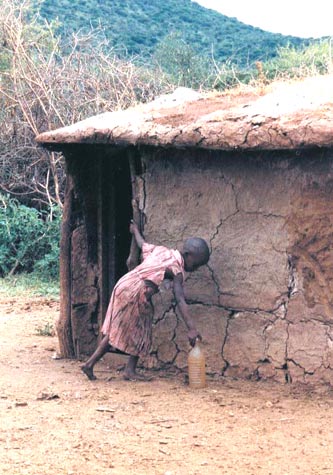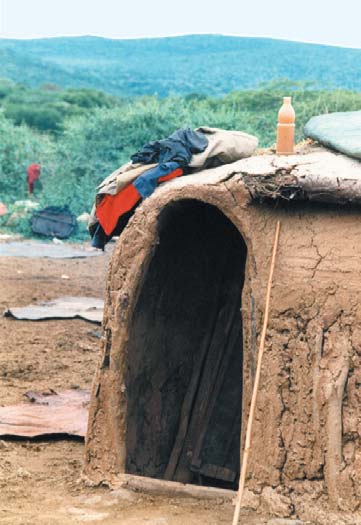| 2005 |

|
YEAR BOOK |
ICROSS & the Royal College of Surgeons in Ireland
|
The ICROSS/RCSI experience – making research make a difference
|
For the past 15 years, ICROSS and the Royal College of Surgeons in Ireland have been carrying out collaborative research. ICROSS (International Community for the Relief of Starvation and Suffering) is a non-governmental organisation (NGO) supporting health and social development in communities in Kenya and Tanzania. It is an NGO with a difference: all administration and policymaking is based in Africa, most of its staff are African, and most of them work within 25 kilometres of where they were born. Its only presence in the developed world is fundraising organisations in Ireland, the UK and Canada.

When I was approached by Mike Meegan, the head of ICROSS, to help them carry out a trial of solar disinfection, I had little idea how different the research was going to be from the sort I was used to. The idea was simple: putting drinking water out in the sunshine in a plastic bottle for about six hours should kill off enough of the bacteria to reduce the risk of diarrhoeal disease, which is a major killer of young children in many developing countries. It was a simple idea, but there was a catch. There are two ways of doing a study like this. The first is the usual way: some white people with clipboards jump out of a four-wheel-drive and run the trial smartly and smoothly. The results end up in a scientific journal and everyone feels that a job has been well done. That's not the way ICROSS works, I quickly found out. The Maasai, after all, don't read The Lancet. Doing research in the traditional way is stealing knowledge. The community puts in thousands of hours in the service of a research project that will mean nothing to them.
We did it in Maasai; everything – all the field work, every scrap of the trial was done by Maasai elders. Not right away either. We actually carried out two trials that didn't work properly and had to throw away the data before finally we got it right: a study that the Maasai were happy with and that would be scientifically valid. But our patience was rewarded. Solar disinfection did make a difference, and the Maasai have adopted it as a way of safeguarding the health of their children. And, indeed, its use is spreading through Kenya. You can now buy plastic bottles from hawker stalls – a sure barometer of the demand for them. I believe that the adoption of solar disinfection by Kenyans came about because the community participated in and shaped the research. This gave them a sense of ownership of the results and allowed the knowledge that we had gathered to be returned to the people who had the problem, closing the research circle.

The ICROSS/RCSI research sprang from self-help groups set up by sex workers themselves. They wanted to highlight the grim conditions they faced – sexual and physical violence, discrimination and stigmatisation. They themselves developed and translated the questionnaire (into 9 languages) and did all the interviews. And for the first time, they were able to enter the research literature as people with families to support, with hopes and fears, in whom a little financial aid could make the difference between being trapped in prostitution and being able to earn a living.
Many white people have made and are making comfortable livings from African sex workers. They are not the pimps, but some of the researchers, whose work has simply served to stigmatise these women further. Indeed, some studies have offered incentives such as free medical treatment to women who participate, helping to ensure that they are trapped into prostitution. There is an important point here: researchers have an ethical obligation to ensure that their work benefits the participants. We believe that some members of the research community have done sex workers a great wrong. By understanding the harm that some research has done, I hope we can formulate a more ethical research policy in which the rights of the participants are respected and their interests brought centre stage.
* Dr Ronán Conroy is a Senior Lecturer in Biostatistics, RCSI He also sits on the College Research Ethics Committee.
Contact: Dr Ronán Conroy, RCSI;
E-mail: [email protected] ;
For more details of ICROSS and the ICROSS/RCSI programme visit at www.icross.ie